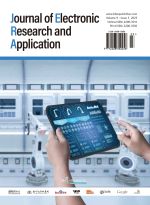Abstract
In recent years, artificial intelligence (AI) has been increasingly integrated into educational settings worldwide. This study aims to explore the effectiveness of AI classroom teaching for Chinese undergraduate students, focusing on its influence on learning outcomes and student engagement. The research uses a quantitative approach, utilizing surveys and academic performance data to evaluate two main objectives: (1) the impact of AI teaching methods on academic performance compared to traditional instruction; (2) the level of student engagement and satisfaction with AI-based learning tools. The study sample includes undergraduate students from multiple universities in China, allowing for a diverse representation of various disciplines. Data will be collected through standardized tests, questionnaires, and academic records, ensuring the reliability and validity of the results. The findings will provide insights into the potential advantages and challenges of AI integration in higher education and inform future strategies for adopting AI in Chinese classrooms. By exploring both the academic and practical aspects of AI-driven education, this research aims to contribute valuable knowledge to the growing field of AI in education, particularly in the context of Chinese higher education. The results are expected to have implications for educators, policymakers, and AI developers interested in enhancing the effectiveness of educational technologies.
References
Ayeni OO, Al Hamad NM, Chisom ON, et al., 2024, AI in Education: A review of Personalized Learning and Educational Technology. GSC Advanced Research and Reviews, 18(2): 261–271.
Kong SC, William C, Zhang G, 2021, Evaluation of an Artificial Intelligence Literacy Course for University Students with Diverse Study Backgrounds. Computers and Education: Artificial Intelligence, 2: 100026.
Chiu TKF, 2023, The Impact of Generative AI (GenAI) on Practices, Policies and Research Direction in Education: A Case of ChatGPT and Midjourney. Interactive Learning Environments, 32(10): 6187–6203.
Sasikala P, Ravichandran R, 2024, Study on the Impact of Artificial Intelligence on Student Learning Outcomes. Journal of Digital Learning and Education, 4(2): 145–155.
Raja S, Jebadurai DJ, Ivan L, et al., 2024, Impact of Artificial Intelligence in Students’ Learning Life, AI in Business: Opportunities and Limitations, Studies in Systems, Decision and Control, Springer, Cham, 516: 3–17.
Chen J, Zhang X, Wang Y, 2020, The Influence of AI-powered Personalized Learning on Student Performance in Higher Education. Journal of Educational Technology, 45(3): 213–228.
Woolf BP, 2010, Building Intelligent Interactive Tutors: Student-centered Strategies for Revolutionizing E-learning. Elsevier, 2010: 403–450.
Li X, He X, Zhang Y, 2021, Exploring the Effect of AI-based Adaptive Learning Platforms on Academic Achievement in Chinese Universities. International Journal of Educational Research, 108: 101–111.
Xu Z, 2022, The Role of Artificial Intelligence in Transforming Higher Education in China. Educational Research Review, 8(3): 125–136.
Zhang X, Wang L, Zhou Y, 2021, Enhancing Classroom Engagement Through AI-powered Education Tools: A Case Study in Chinese Universities. Computers & Education, 162: 104082.
Hwang GJ, Wu PH, Chen CH, 2019, Application of Intelligent Tutoring Systems for Improving Student Engagement and Performance. Educational Technology & Society, 22(1): 45–55.
Wang J, Li L, 2022, Barriers and Challenges of AI Integration in Chinese Higher Education. Asian Journal of Education Technology, 11(2): 67–79.
Nguyen A, Kremantzis M, Essien A, et al., 2024, Enhancing Student Engagement Through Artificial Intelligence (AI): Understanding the Basics, Opportunities, and Challenges. Journal of University Teaching and Learning Practice, 21(6).
Nah FFH, Zheng R, Cai J, et al., 2023, Generative AI and ChatGPT: Applications, Challenges, and AI-human Collaboration. Journal of Information Technology Case and Application Research, 25(3): 277–304.
Singh E, Vasishta P, Singla A, 2025, AI-enhanced Education: Exploring the Impact of AI Literacy on Generation Z’s Academic Performance in Northern India. Quality Assurance in Education, 33(2): 185–202.
